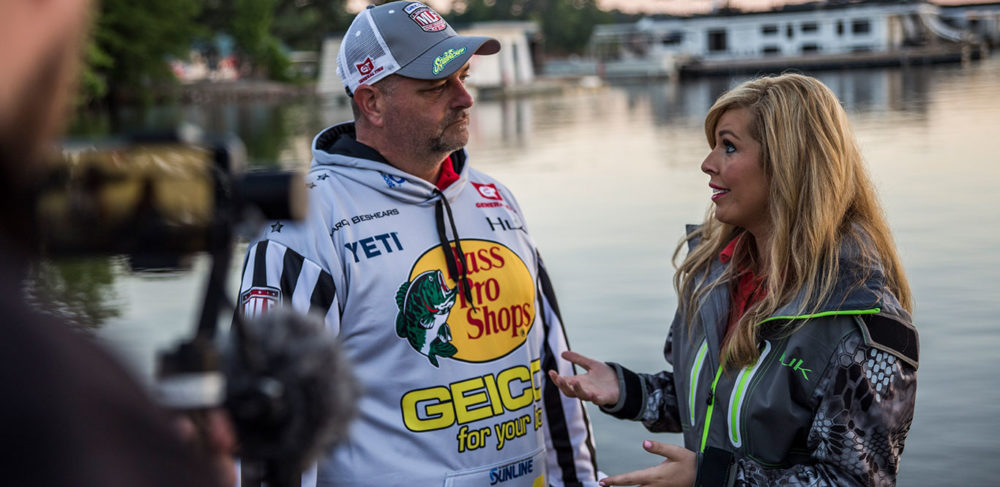MLF From a New Angle: An Official’s Point of View

How many times have you seen a football official high five a player after an awesome play? A baseball umpire fist pump when his favorite player hits a home run? Although those officials might be huge fans, you would never know it watching them during the game—they’re calm, collected, and call the game by the rules and what they see, without emotion. This same mentality is also true for the MLF boat officials.
Many aspects of Major League Fishing have changed since the first show filmed at Lake Amistad in 2012, and the boat officials, rules, and game are in many ways entirely different. While initially MLF’s boat officials were similar to other marshals, observers and co-anglers, the MLF boat officials of 2018 attend numerous hours of on-the-water training, classroom training, and scenario training and consult video re-play between events to help them learn how to properly officiate this game.
I’ve been a co-angler on the FLW circuit as well as a marshal on the BASS circuit, and I can say with firsthand knowledge that no matter what circuit you’re on, a boat official has a tremendous responsibility during competition. As a co-angler, the biggest responsibility I felt was to properly net the pro’s fish and basically not be a hindrance, while learning as much as possible about their techniques. My responsibility as a BASS marshal was basically to be another set of eyes and a witness as far as their rules were concerned, but more so to simply be an observer.
In both cases, we were allowed and encouraged to converse with the angler during the day and even root them on after landing a huge fish. High fives, celebrating with the anglers, etc. was standard, and there is nothing wrong with that. MLF is different, though. An MLF official is more similar to a referee in a major sport than your typical tournament marshal. We are there to call the game as WE see it. Not how the angler sees it. Not how the cameraman sees it, and not how the audience sees it.
Something as simple as giving an angler a high five or celebrating with the angler CAN affect the game. Anything other than calling the game impartially is simply not fair—Not to your angler, not to the other anglers, and not to the sport. A 2-minute penalty might not seem all that significant until you witness a game-changing catch with only 15 seconds to go. I’ve seen some anglers with as many as 20 minutes of penalties at the end of the day. That certainly affected their game.
The stakes for MLF anglers are extremely high—Advancement to other rounds and even being dropped from MLF all together due to poor performance are just some of the factors anglers face during an event.
Boat officials all have different personalities that show off the water, but during competition, our focus is the job at hand. I personally find it easier and more effective while calling an event to try and appear to not even be in the boat (as far as the anglers concerned) per say, until it’s time to do what I was hired to do. We treat all anglers equally and as fairly as possible, regardless of how much success they have in their portfolio or how we might feel about them at the end of the day.
Yes, boat officials are fans of these anglers. Otherwise, most of us probably wouldn’t be doing this. In our final task of the day, the officials attend a huddle meeting to discuss the calls that were made, issues on the water with anglers or equipment, our next day assignments, etc. I have yet to attend an event where we didn’t also stand in a tight circle after each day of competition and discuss what we witnessed firsthand, the techniques, skill, baits chosen, locations chosen, and how we might apply what we learned to our own fishing.
The MLF anglers are, without a doubt, the best anglers in the world. It’s like being in the middle of a NFL huddle while Brett Favre critiques what happened on the last play and calls out what his next play is going to be. Every play, every decision, every minute of the game- We hear it all, then back to work we go. Fish landing violation, 2-minute penalty!